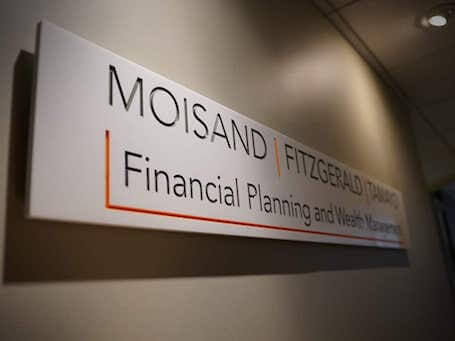With the Fed raising rates, how high will rates go?
The media keeps front and center the issue of how many interest rate increases by the Federal Reserve are coming and how high those increases will be. However, no one knows for certain how far up interest rates might go.
The interest rates for which there is sometimes clarity are the federal funds rates. The federal funds rate is the rate that banks, credit unions, and other institutions charge each other for overnight loans of reserves deposited at the Federal Reserve (the Fed). The Federal Reserve uses its operations to get these super short-term rates within its target range. It does not directly set the rate. The rate is negotiated between institutions on the open market.
Because the Fed’s target rates affect the costs lenders incur, changes indirectly affect the rates lenders charge. Again, the Fed does not directly set rates for auto loans, mortgages or interest paid on bonds. Those rates are determined on the open market.
…the Fed does not directly set rates for auto loans, mortgages or interest paid on bonds. Those rates are determined on the open market.
In many cases, the Fed will signal to the market what changes to the target range they have in mind. As a result, market absorbs this information and rates change before the Fed acts. Often, there is a disconnect between the Fed’s action and how one might think interest rates would change. That was the case for the most recent .75% increases. Instead of interest rates rising, many key rates fell.
The Fed announced it would raise its target .75% on June 15th and announced another .75% increase on July 27th. According to Mortgage News Daily, rates on 30-year fixed loans were at 6.28 on June 15th yet were down to 5.13 as of July 29th.
A similar effect occurred with the interest payable on U.S. Treasury securities. For instance, on June 15th, five-year U.S. Treasury bonds yielded 3.38% and by July 29th, the rate had dropped to 2.7%. If you had abandoned those bonds out of fear of higher rates, you would have missed an increase in the value of a bond over that period.
There is a media lesson here that is important. In mid-June as those rates were reaching recent high-water marks, the media was awash with stories about how the Fed would raise its target and these rates would continue higher. It was an easy narrative to tell. Inflation is high so the Fed must raise rates and therefore other rates will follow. That may be the case going forward but so far that storyline has been dead wrong.
The point here isn’t to mock yet another set of forecasts that didn’t materialize and say don’t listen to those people that got it wrong. It’s to encourage you to note how short term all this discussion about rates is and encourage you to stay focused on the long term. You shouldn’t care who was right about such short-term market moves. You do not need a short term forecast of rates, inflation, the economy or the stock market to have a good outcome if you have a sound plan and stick to it.
Making News…
We continue to help various media outlets provide sound information to their audiences. (Some links may require a subscription to view.)

Dan Moisand,CFP® continues to write for MarketWatch and Florida Today. Click on the links to read some of his published articles:
Talk of an impending recession worries me: Should it affect my investments? – Florida Today
Is there really a tax if I pay for my grandson’s college? — Florida Today
Can I turn my post-tax 401(k) into a Roth? – MarketWatch
My wife inherited a 401(k)—what’s the best way to avoid a big tax hit? – MarketWatch
Now is a good time to account for investment losses – MarketWatch
How do I pay taxes on a Roth conversion? – Florida Today
In the News…
The Orlando Business Journal gave our firm two pieces of recognition in July. Moisand Fitzgerald Tamayo, LLC was named to the 2022 OBJ Fast 50 for being one of the areas fastest growing privately held companies and its 2022 Golden 100 list of Central Florida’s largest privately held companies. “These companies … have proven their ability to withstand economic crises time and time again.” wrote Denise Hicks, Research Director of the Orlando Business Journal
Moisand Fitzgerald Tamayo, LLC was again listed in Financial Advisor magazine’s ranking of independent firms in the U.S. This is an annual listing based upon assets under management. We came in at #343 which is a comfortable spot for us. While we are growing and will continue to grow, we seek only responsible, manageable growth, preferring quality over quantity.

If you are a member of an organization in need of a personal finance speaker, we are happy to talk with your group’s organizers about helping out at no cost.
CNBC reporters rely on us for many of their stories. Charlie Fitzgerald, CFP® was tapped for a couple of pieces, What a bear market means and Do you want to know how inflation impacts your savings? The ‘rule of 72’ may help
DJ Hunt, CFP® helped out with Millennials’ average net worth doubled during pandemic, report finds – CNBC and Tommy Lucas, CFP®, EA contributed his thoughts to With inflation causing college costs to spike, these tax tips may help – CNBC, Experts answer three tricky questions about Series I bonds – CNBC, and Still missing your tax refund? You’ll soon receive 5% interest
MarketWatch tapped Dan Moisand,CFP® for his thoughts on Financial planning for children with disabilities is stressful — here are some resources for parents
Things We Found of Note
Of those with a 401(k) plan, the median balance (half the people have more, half less) for persons age 55- 64 is just $89,716.

